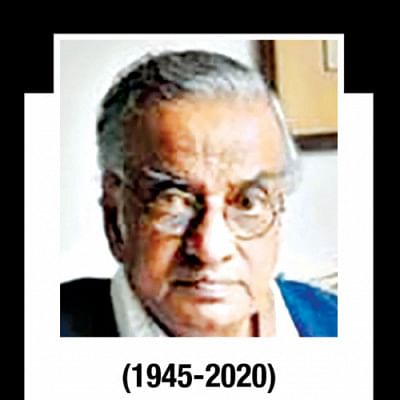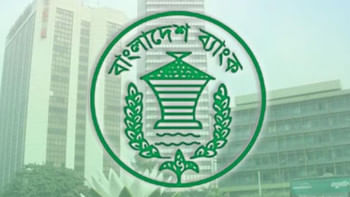A legacy to lean on

Abul Hasnat left us yesterday at the age of 75.
His legacy, however, as a litterateur and literary critic will live on.
His magazine "Kali O Kalom" will continue its journey and so will the literary section of the Bangla daily Sangbad, in which his longstanding editorship was proof of his prowess.
The section was synonymous with Abul Hasnat. He was the editor of the section for over three decades before joining Kali O Kalom, a Bengal Foundation publication.
At the news of his death, people in literary circles have been talking about his role in the magazine. But to me, he will be best remembered as the editor of the Sangbad's literature section.
Born in 1945 in the old part of Dhaka, Hasnat was actively involved with Chhatra Union while studying at Dhaka University. He was the vice-president of Chhatra Union in 1971 and also played a role in the Liberation War while staying in India.
His wife Nasimun Ara Huq is a journalist and their only daughter Diti Hasnat lives in the USA.
There was a time when doyens like Anisuzzaman, Shamsur Rahman and Syed Shamsul Haque used to write in the Sangbad's literary section, under Hasnat's editorship.
Those who used to read that page back then can still recall Syed Shamsul Haque's column "Writhkolomer Tane", which he wrote regularly.
There were so many writers who wrote in the section and Hasnat was the man behind their inspiration. The Kali O Kalom magazine has also been published for the last two decades keeping, maintaining the high standard under his leadership.
While talking about editor of a literary section, the name of Ahsan Habib will come to our mind first. Despite that, the literary pages of the Sangbad under the editorship of Abul Hasnat has occupied a unique place in our hearts. We can debate over certain things, but in the history of Bangladeshi newspapers, the importance of the Sangabad's literary section will remain and Hasnat will be remembered as its shining star.
All the writers in the country respected his editorial position. He never judged a write-up by the name associated with it but only by the merit of it.
He had many friends in the poet circle like Nirmalendu Goon and he would write poetry under pseudo name Mahmud Al Zaman.
He was a critic of the arts and had many friends in that field. Critical opinion in the field of arts was one of the main features of the Sangbad's literary section. It is said that perhaps different newspapers of the country followed suit.
He has written and edited many books – "Jyotsna and Durbipak", "Kono Akdin Bhubandangay", "Steamer City Diye Jay", "Tuku O Somudrer Golpo", "Youddya Diner Dhushor Dupure", "Ranur Dhokha-Bhalobasha", "Rabindra-Chitrakalan", "Muktijudder Golpo", "Harono Shirir Chabir Khoje" and "Chotoder Abraham Lincoln", and many more.
He was a quiet sort of man but lived his life on his own terms. He always tried to improve on other's literary works and perhaps for that he was never attentive about his own.
Hasnat was also a key organiser of Chhayanaut.
I had an opportunity to travel with him.
It was probably 2007 or 2008 and we were travelling to New York. During the 18-hour long flight, he spoke few words and responded to fewer questions. He was obsessed with the book he was reading.
We went there to attend the two-day seminar. While most of us met friends and relatives during the breaks at the seminar, he was the only person who did not go out.
He was a man of principle his entire life.
Hasnat was buried at the Mirpur Martyred Intellectuals' Graveyard yesterday afternoon. His namaz-e-janaza was held at the Baitul Aman Mosque in Dhanmondi.
Bangla Academy, Bengal Foundation, Gyantapas Abdur Razzaq Foundation, Jatiya Kobita Parishad,Chhayanaut and Sayamilito Samajik Andolon have condoled the death of Abul Hasnat.
In separate messages, the organisations prayed for eternal peace of the departed soul and conveyed deep sympathy to the bereaved family members.

 For all latest news, follow The Daily Star's Google News channel.
For all latest news, follow The Daily Star's Google News channel. 



Comments